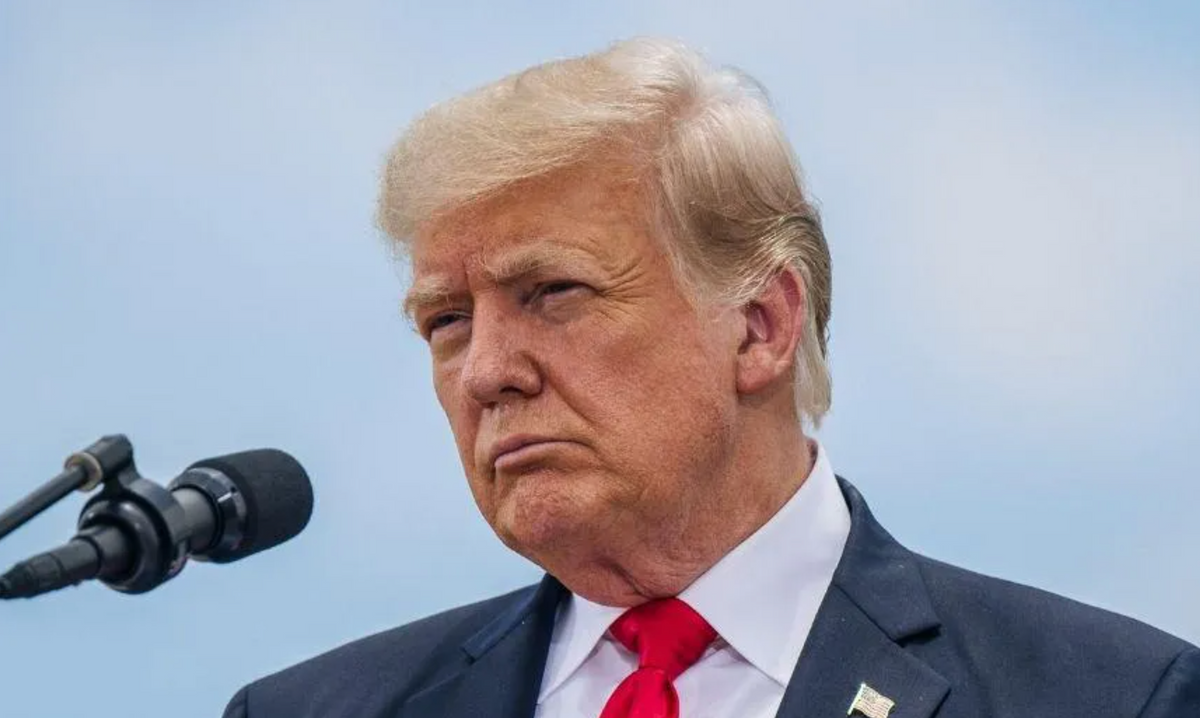Since announcing his candidacy for President of the United States in 2015, former President Donald Trump presented himself as a business genius who could get the country back in fiscal shape, even promising to completely eliminate the national debt in just eight years.
In reality, the national debt grew by nearly $8 trillion, largely due to the Trump's Tax Cuts and Jobs Act of 2017, which Republicans continue to defend.
It shouldn't come as a surprise that Trump fell short on this promise, because despite images boasting the Trump family's material grandeur, television shows projecting the illusion of success on Trump's businesses, and ghost-written books about Trump's negotiatory acumen, the truth is that Trump's business skills are far from exception.
Trump has backed dozens of failed businesses, filed for bankruptcy multiple times, and been embroiled in thousands of lawsuits. The Trump Organization is under continued scrutiny from the New York Attorney General's office after a round of tax fraud charges.
Oh, yeah, and Trump remains hundreds of millions of dollars in debt.
But amid all of this, Trump has had a spot on the Forbes list of 400 richest Americans for the past 25 years—until now.
Donald Trump is no longer rich enough to make the #Forbes400 list https://on.forbes.com/6016JH87I\u00a0pic.twitter.com/QctYBAoBSH— Forbes (@Forbes) 1633447444
To make matters even more embarrassing, Trump's loss of the distinction wasn't due to others getting richer or some left-wing conspiracy against him—it was his own business decisions.
Forbes notes that Trump made the controversial decision to keep his investments after taking the White House, likely fearing stratospheric capital gains taxes, as his most lucrative investments were made long ago and have seen generous returns over decades.
But here's the kicker, according to Forbes:
"[W]hat would have appeared to be a huge sacrifice at first could have turned into a lucrative realignment. By plowing that $2.4 billion in an index fund tracking the S&P 500, for example, Trump's fortune would have ballooned to $4.5 billion by now, leaving him 80% richer than he is today. His refusal to divest, in other words, cost him $2 billion.
What's more, Trump could've completely avoided these capital gains taxes, as a statute in the federal tax code rewards government workers who divest their holdings with a certificate of divestiture allowing them to sidestep such taxes. Walter Shaub, who was the United States Office of Government Ethics director when Trump took office (now one of his biggest critics), told Forbes he "would have been happy to hand Trump a certificate of divestiture," even though it's unclear if the Internal Revenue Service would've honored it. But Trump's team never even inquired about it.
As Forbes points out, that was a huge mistake:
"If Trump had managed to avoid capital-gains taxes, he could have theoretically reinvested $3.5 billion into the S&P 500 on the day he entered the White House. In that alternate scenario, Trump would have been worth an estimated $7 billion by this September, when Forbes locked in estimates for its annual list, enough to earn a spot as the 133rd-richest person in the country. Instead, he's off the Forbes 400 for the first time in a quarter-century."
Social media users couldn't help but mock the former President—Shaub among them.
LOL! If Trump had divested, he could have deferred capital gains taxes and would likely have made money instead of losing money, according to @DanAlexander21. Turns out, having ethics would\u2019ve been profitable.https://www.forbes.com/sites/danalexander/2021/10/05/donald-trump-falls-off-the-forbes-400-for-first-time-in-25-years/?sh=601e6380f62b\u00a0\u2026— Walter Shaub (@Walter Shaub) 1633439327
Donald Trump is only good at losing.https://www.forbes.com/sites/danalexander/2021/10/05/donald-trump-falls-off-the-forbes-400-for-first-time-in-25-years/?sh=d8ff66cf62b3\u00a0\u2026— MeidasTouch.com (@MeidasTouch.com) 1633448670
Amazing. @forbes estimated Trump would have been 80% richer today \u2014 $2 billion \u2014 had he done the right thing and divested his business when he became Presidenthttps://twitter.com/glennkesslerwp/status/1445409525188767753\u00a0\u2026— Susan Glasser (@Susan Glasser) 1633451124
\u201cRigged!\u201d \n\n\u2014Donald Trump\n\n\u201cEveryone knows Trump is\u2014by far\u2014the richest person in the history of history.\u201d\n\n\u2014John Barron\n\n\u201cForbes\u2019 Excel program was hacked by microscopic space aliens in chartreuse thongs!\u201d\n\n\u2014Sidney Powell\n\n\u201cStill ranked too high.\u201d\n\n\u2014IRShttps://www.forbes.com/sites/danalexander/2021/10/05/donald-trump-falls-off-the-forbes-400-for-first-time-in-25-years/?sh=62b3910ff62b\u00a0\u2026— Mrs. Betty Bowers (@Mrs. Betty Bowers) 1633450514
It's striking that, if Donald Trump had listened to ethics officials and @CREWcrew and divested from his businesses and diversified, he not only would have avoided conflicts of interest that corrupted our country, he likely would have made more money.https://www.forbes.com/sites/danalexander/2021/10/05/donald-trump-falls-off-the-forbes-400-for-first-time-in-25-years/?sh=6dcd9e60f62b\u00a0\u2026— Noah Bookbinder (@Noah Bookbinder) 1633442100
Donald Trump isn\u2019t on Forbes 400, Facebook, or Twitter.— Mayo (@Mayo) 1633452513
Others doubted he belonged on the list in previous years, after all Trump has been credibly accused of lying about his wealth specifically to secure a spot on Forbes' list.
I wonder if he was too distracted to lie his way onto the list this year, or they were too aware of his methods now to let him.https://www.forbes.com/sites/danalexander/2021/10/05/donald-trump-falls-off-the-forbes-400-for-first-time-in-25-years/?sh=7c7aaf7ff62b\u00a0\u2026— Schooley (@Schooley) 1633446304
He probably didn't belong on that list in the 1st place.\n\nTrump Tumbles Off Forbes Rich List After COVID Pandemic Slashes His Fortune https://www.thedailybeast.com/trump-tumbles-off-forbes-rich-list-after-covid-pandemic-slashes-his-fortune?source=twitter&via=desktop\u00a0\u2026 via @thedailybeast— Tom Williams (@Tom Williams) 1633441321
Womp Womp. Was he ever really on it?\n\nTrump falls off Forbes list of America's richest peoplehttps://thehill.com/policy/finance/575318-trump-falls-off-forbes-list-of-americas-richest-people\u00a0\u2026— Pixi Vaxxed (@Pixi Vaxxed) 1633453393
That's gotta hurt.
 SECONDNEXUS
SECONDNEXUS percolately
percolately georgetakei
georgetakei comicsands
comicsands George's Reads
George's Reads








